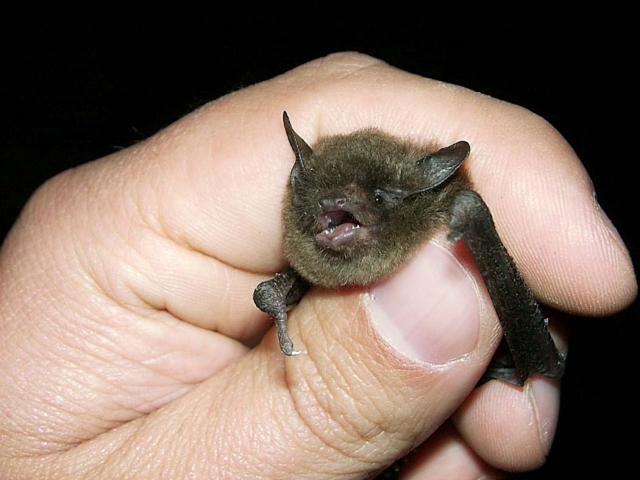IHA offers tips that can reduce the risk of rabies
Summer is just around the corner and for most families that means plenty of time spent outdoors.
So it’s important to know that activities like these can result in contact with bats, the primary carrier of the rabies virus in B.C.
According to Interior Health Authority (IHA) rabies is a very serious disease that affects the nervous system. If not treated in time, rabies is almost always fatal.
In 2012, 39 people in the region were treated for potential exposure to rabies. Treatment, involving a two week long period of vaccinations, must be administered as soon as possible after exposure.
“Between four and eight per cent of the bats that are tested after coming into contact with people are found to have the rabies virus,” Jennifer Jeyes, Communicable Disease Specialist with Interior Health said in a press release.
“Most bat-human encounters occur when bats get into houses or summer cabins, usually through open windows, doors, chimneys, or narrow cracks. Attics are a favourite bat refuge. If you come into contact with live or dead bats, it is very important to avoid touching them.”
Interior Health advises that all contact with bats should be taken seriously.
“Anyone who has come into contact with a bat should call the local public health unit or their doctor right away even if you can’t see bite marks or scratches,” said Jeyes.
“Bats have tiny sharp teeth and claws, so scratches or bites may not be visible but could still be there. People should not wait for symptoms to appear. Get checked out as soon as possible – early treatment is crucial to prevent the disease from progressing.”
Interior Health offers these tips to protect yourself:
Prevention:
Do not touch live or dead bats. Parents should tell their children not to play with or touch bats.
Make the home or cabin “bat proof”. Keep doors and windows closed, make sure window screens don’t have any holes, and keep the attic area free of bats by keeping all vents properly screened and by closing off other openings.
Anyone finding a live bat in a room of your home, open the window and close interior doors until the bat leaves.
Seek professional bat-control advice (from a pest control or wildlife specialist) if your home or workplace or is inhabited by bats.
Avoid locations or activities where bats are likely to be found (e.g., caves).
Make sure pet dog, cat, or ferret are vaccinated regularly against rabies.
Pets that were born and raised in B.C. pose a very low risk of transmitting rabies to humans; however, vaccinating your pets will protect them from rabies.
Anyone bitten or scratched:
Thoroughly wash the wounds with soap and water.
Contact the ocal public health unit or family doctor immediately.
Call a wildlife or pest control company to capture the bat. If trying to capture the bat, avoid contact by wearing leather gloves, a hat, long sleeves and pants.
Safely contain the bat in a secure covered container to prevent others from being exposed. Keep the bat in a safe location until Public Health can arrange to pick it up and test it for rabies.
When traveling abroad:
· In B.C., bats carry the rabies virus and other animals are only rarely infected. In other parts of the world rabies can be carried by other species. Be aware of the risk of rabies in the country you are visiting.
Anyone bitten by an animal and started on the rabies vaccine, keep all documentation you were provided. It will need to be reviewed by Public Health when you return home.
Note the type of clinic or hospital you visited. This information will be used by Public Health to determine if you received the same standard of protection that you would have received at home.
For more information:
See HealthLink BC File #07 at http://www.healthlinkbc.ca/healthfiles/hfile07.stm


























Comments